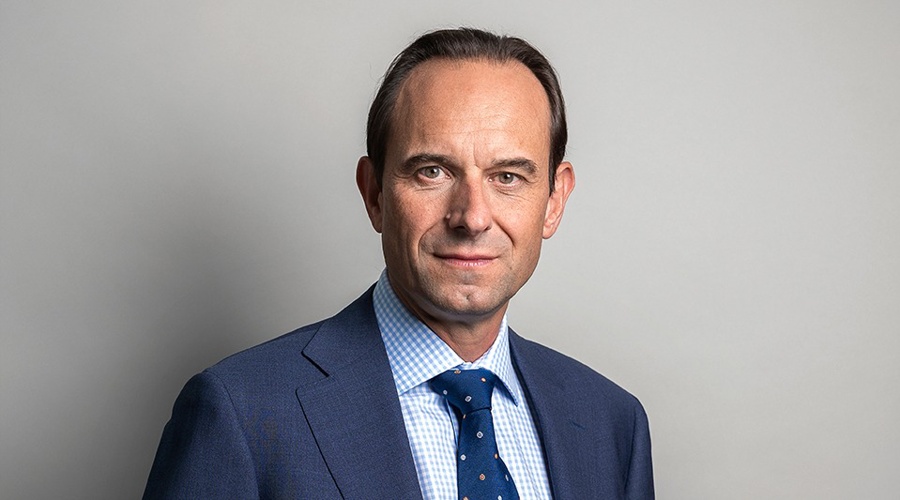The German financial market regulator wants to accelerate its current approach to licensing crypto custody services. The announcement, made by BaFin's President Mark Branson during the Handelsblatt Banking Summit in Frankfurt, comes as part of a broader effort to instill trust and transparency in the rapidly evolving crypto asset market. The new policy has implications for crypto custody providers and sets the tone for future regulatory developments in Germany.
BaFin's Trust in a Volatile Crypto Market
Amid increasing volatility and skepticism in the crypto markets, Germany's regulatory body for financial institutions (BaFin) new licensing approach aims to instill a sense of trust among investors. According to Branson, regulated players in Germany are gaining market share as consumer apprehension in the crypto markets increases. The regulatory body's latest actions reassure investors that their assets will be handled with integrity.
The first eight months of 2023 saw BaFin complete twice as many application processes for crypto custody licenses as the previous year. This uptick in regulatory activity shows a keen awareness of the need for stronger oversight in a growing market. BaFin's President ensures that only companies with a plausible business model, sufficient start-up capital, and reliable management staff receive permission to operate.
"In recent months, we have also picked up the pace in issuing crypto custody licenses and in rejections: in the first eight months of this year, twice as many application processes were completed as in the entire last year. And the year is far from over," Branson commented during the Handelsblatt Banking Summit in Frankfurt.
"Auch im Zeitalter grenzenloser digitaler Finanzangebote brauchen wir eine Regulierung, die ein vertrauensvolles Marktumfeld schafft", so BaFin-Präsident Mark Branson auf dem #HBBanken-Gipfel. Aktuell besonders im Fokus: #KI & der Digital Operational Resilience Act (DORA). pic.twitter.com/xpAbPV07ML
— Bundesanstalt für Finanzdienstleistungsaufsicht (@BaFin_Bund) September 20, 2023
Despite the trust announcements, BaFin has joined the anti-Binance sentiment in recent months and rejected the company's license application in the country. Generally, Binance is struggling with regulatory issues in Europe, exiting Cyprus and the Netherlands after facing lawsuits in the United States.
Crypto Risks and Rewards
While BaFin's new approach paves the way for more regulated crypto activities, it does not come without its share of scrutiny. Branson emphasized the importance of being particularly thorough in this market segment due to its associated risks. However, he also acknowledged the potential rewards, stating that in the long term, customers will primarily trust providers who are subject to regulation and strict supervision.
"In the long term, customers will primarily trust providers who are subject to regulation and strict supervision. We have heard from regulated players in Germany that they are gaining market share as nervousness in the crypto markets increases," Branson explained.
BaFin's proactive stance serves as a blueprint for future regulatory initiatives in Germany and potentially across the European Union. As the crypto market continues to evolve, so does the role of regulatory bodies like BaFin. Branson expressed that the authority is open to innovation as long as it serves consumers and will continue monitoring technology to indirectly promote the financial location closely.
Branson also spoke about cryptocurrencies towards the end of last year where he suggested the need for top-down regulation in the industry. He acknowledged that a self-regulatory approach would not be a good solution for such a decentralized and diverse sector.
The Intersection of AI and Crypto
As Mark Branson pointed out in his speech, financial regulators have noticed the rapid advancements not only in the crypto space but also in artificial intelligence (AI). AI technologies, particularly generative language models like ChatGPT, can analyze large data sets and recognize patterns that are difficult for humans to perceive. This has particular implications for the crypto market, often criticized for susceptibility to fraudulent activities like money laundering.
In this context, BaFin sees AI as a double-edged sword. On the one hand, AI technologies can significantly aid in monitoring transactions, thereby providing an additional layer of security and possibly making the process of issuing crypto custody licenses more efficient. This aligns well with BaFin's accelerated approach to crypto regulation, as AI can help sift through the increasing number of applications more swiftly, ensuring that only credible players enter the market.
On the other hand, using AI raises ethical and operational concerns. As BaFin advocates for AI decisions to be transparent, comprehensible, and explainable, there is a clear need to ensure that AI applications in the crypto sector do not result in unlawful discrimination against customers or opaque decision-making processes.
"Generative AI shows how technologies can develop in leaps and bounds. We closely monitor whether already known risks change as a result and new ones emerge," Branson concluded.
By closely monitoring the role of AI in financial services, BaFin aims to create a balanced ecosystem where innovation in crypto and AI can thrive without compromising the integrity of the financial system or the protection of consumers.






















